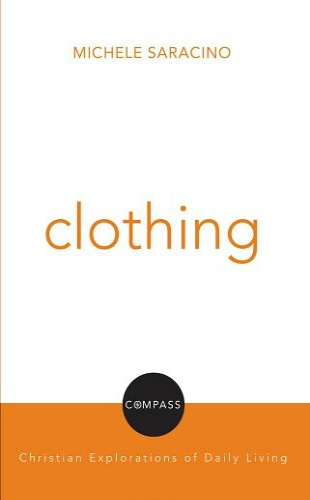Michele Saracino is professor of religious studies at Manhattan College in New York City. She is the author two other books. Clothing is part of the Fortress series "Compass: Christian Explorations of Daily Living" edited by David H. Jensen. Many of the authors are members of the WorkGroup in Constructive Theology.
Each day we make choices on what to wear and the clothes we put on signal the many different roles and moods of our personality. Our garb also gives off signals about how we feel about conforming to societal and cultural standards. Whether we like it or not, we live in a consumer society that shapes and directs our lives including what we wear.
Michele Saracino points out that our human vulnerability and neediness renders us very susceptible to the fads of the fashion world and the dictates of cultural tastemakers. That is why Herbert Spencer is quoted as saying that our dress can provide us with the "peace" that religion fails to offer us.
More outside pressure is created by the so-called perfectionism of super-models and the marvels of plastic surgery. Anne Lamott notes: "Perfectionism is the voice of the oppressor, the enemy of the people. It will keep you cramped and insane your whole life."
The rise of eating disorders on one hand and obesity on the other reveal how nefarious the ideal of the emaciated young woman has become in our times. In this judgmental society, being overweight or wearing second-hand clothes brands you as not good enough.
According to Saracino, the incarnation, as understood in Christian theology, calls us back to essentials which lead away from conformity or enslavement to fashion and consumer trends and pressures. We disavow the lies of perfectionism and emphasize instead the virtues of vulnerability and humility.
